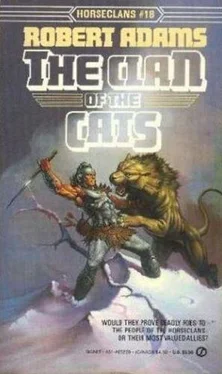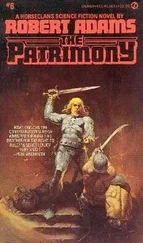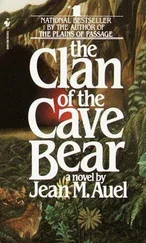A smile flitted briefly across Milo’s face. “Why thank you, Mr. Henshaw, thank you very much.”
Henshaw sat for a moment with his mouth agape, his face a very picture of puzzlement. “For what, Moray?”
Milo bedded the hook with secret delight. “Why, for those compliments, of course, Mr. Henshaw, those completely unexpected but still deeply appreciated compliments.”
Henshaw’s face went from red to ashen once more, and a hint of fear came into his eyes. “Moray … colonel, are … are you quite well?”
Milo chuckled. “If anyone should know, it’s you, sir. If you’re in doubt, why not read through Walter Reed’s report on me again? Or you could ring them up, for that matter. If what you are actually questioning is my mental and emotional condition, then, no, I am not mad … but consider this; even if I were and knew it, I’d be expected to give you that same answer. Right?
“As to why I thanked you, what I found complimentary was your comparison of me to Eustace Barstow.”
“But … but … how … what … ?” spluttered Henshaw, his pale face and hairless head slowly edging again from pink to pinker. “That man is certifiable! How he’s retained so much power for as long as he has is simply beyond me or any other rational person. He’s—”
“He’s a true patriot, in his own way,” put in Milo quietly. “He was one of the first men to have recognized the true and deadly danger to this nation, its people, all free nations of the world and even civilization itself that was then and is still poised by ‘our brave Russian ally’ of World War Two. If I and others had paid more attention to him, worked for him and with him, away back when, instead of doing our own version of the Wanna-Go-Home Boogie, there is at least a slim chance that we and ’Nam and the rest of this suffering world wouldn’t be in the sad shape it is today.
“I know full well that what you said was in no way intended as flattery. Nonetheless, Mr. Henshaw, I took it and take it as just that. And not the least of my reasons is this; anyone who so fervently supports Senator McGovern’s candidacy as you seem to do is patently well beyond mere liberalism and into true leftist thinking and beliefs, and when a leftist of any water calls me such things as right-wing radical, reactionary and fascist, then I am comforted in the knowledge that I have impressed upon him the true facts that I fundamentally oppose him and everything—every rotten, red thing—for which he stands.
“You questioned Eustace Barstow’s retention of power. Well, I cannot but wonder just how and when a thing like you managed to secure a place in this, the nerve center of our nation’s military establishment … and I mean to find out, too, Mr. Henshaw. Perhaps I should seek out Eustace Barstow and ask him about you, oh? You have any idea where he is just now, Mr. Henshaw? No? Then why don’t we ring up Langley? Surely the CIA would be able to put us in touch, don’t you think?”
Pale still again, Henshaw hissed, “You were well advised to leave well enough alone, Moray. I have influence in more places and levels than you could ever imagine. I’ve been a government employee for almost twelve years now, and my loyalty has never once been questioned, by anyone. The last I heard, this is still a free country, and that means that have a right to my opinions, political and otherwise, whether you or Barstow or any other of your stripe of Neo-Nazi warmongers approve of them or not.
“I mean to see you out of our army as expeditiously as possible. You’ll never go back to the war zone, understand? And that will be all to the common good—one less bloodthirsty killer there.
“Now you get up and gel out of my office this instant! The smell of death is on you and I want you out of here. Now, get out!”
The best part of four days were required to get Milo in touch with Eustace Barstow. He had about given up. in fact, and was sipping a drink while watching the late news on the television set in his hotel room when the telephone jangled.
“Moray here,” he answered.
“I understand you’ve been looking all over D.C. for me, Milo,” said his caller. “Okay, I’m in the Shoreham lobby, so heave out the boards and I’ll come on up there bearing bottle, good stuff, direct from the Danish Embassy. You have a bucket of ice up there? Good”
Save for a close-cropped head of snow-white hair and a few more wrinkles, the Eustace Barstow who presently appeared at the door to Milo’s hotel room was not significantly different from the Major Barstow to whom he had reported at Fort Holabird thirty-odd years before, the Colonel Barstow to whom he had reported in Munich or the Brigadier General Barstow for whom he had briefly worked while World War Two wound down and ground to a halt. It had been most of nine years after that before he had again run into Eustace Barstow. Just back from the stalemate in Korea but not at all sure that he wanted to become again the wealthy, privileged, globe-trotting man of leisure he had been prior to that mishandled war, Milo had agreed to serve Barstow’s operation on a strictly one-time-only basis.
After the backslapping, handshaking and exchange of friendly obscene insults, the white-haired man in the meticulously tailored silk-and-cashmere suit carelessly tossed his fedora onto the bed and handed Milo the padded-suede bottle pouch.
When he had unzipped the pouch and lifted out the liter-size bottle of clear liquid, he remonstrated, “Great God, General, akvavit? Why don’t you just drink grain alcohol? One’s about as strong and deadly as the other.”
Barstow chuckled good-naturedly. “Because I’m queer for caraway, Milo. Kümmel is good for the digestion—both the Germans and all the Scandinavians swear to it as fact. Use lots of ice, Milo, it’s best when it’s as cold as you can get it.”
When they had ritually touched glasses, Barstow threw down the three or four ounces of hundred-plus-proof liquor in a gulp before Milo had hardly sipped his own.
As he refilled his guest’s extended glass, Milo shook his head and asked, “How often do you have to be sent to Reed or Bethesda to dry out, General? Or is there a classified facility for men of your rank and status?”
Barstow chuckled again. “You know, I’d almost forgotten just how goddam insultingly insubordinate you can be at times, Milo. That endearing trait of yours is directly responsible, as you well know, for the fact that with almost thirty-five years—including your four years of reserve time—of service and three wars behind you, you’re still only a lousy light colonel. You were ordered out, to be sent stateside, no less than six times that I know of in the last ten years; hell, man, if you’d come when ordered, you’d most likely have two or three stars by now, Why didn’t you?”
Milo half smiled. “Would you believe me if I told you there was just no way I could’ve gotten out when the various orders reached me?”
“Hell, no!” snorted Barstow. “Any man who managed to get out of Dien Bien Phu and clear down to Saigon, through the length of a country swarming with Vietminh, and did it all alone and unaided, without even a fucking guide and showed up without a scratch on him, could get back to Saigon again. So why didn’t you, damn you? The truth, this time, please.”
“Okay. Genera!” Milo said. “I didn’t come out because not only was I needed where I was, but I knew that what I was doing there was damned important. In D.C. or wherever, I’d’ve been put to shuffling papers, playing politics at O-club parties, expected to suck up to congressmen and perform similar useless, senseless functions. Not to mention being expected to lie to everybody and his brother about how well that war we’ve now lost was going.
Читать дальше












